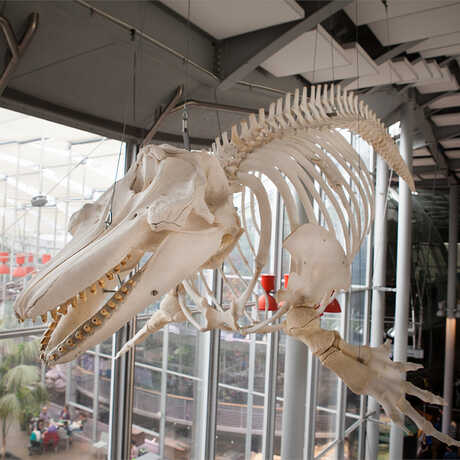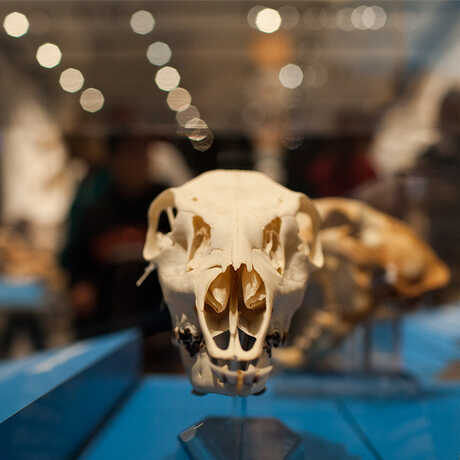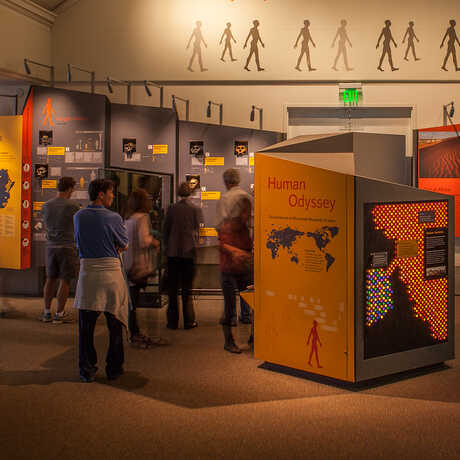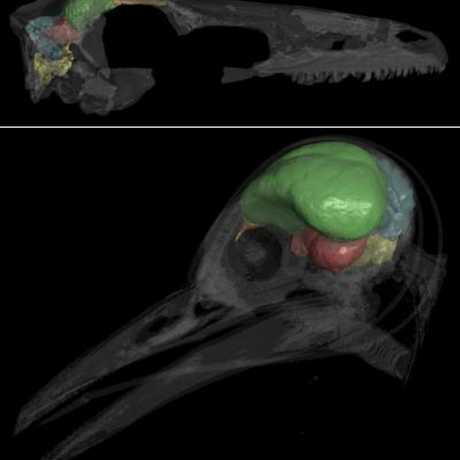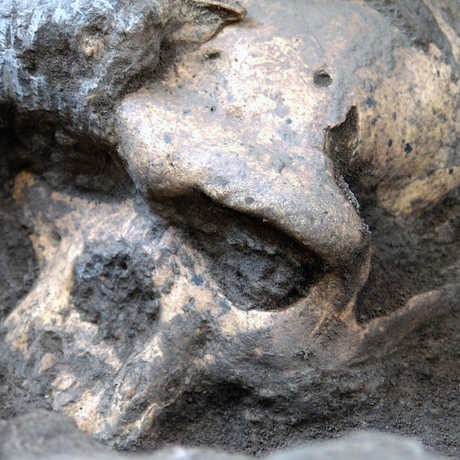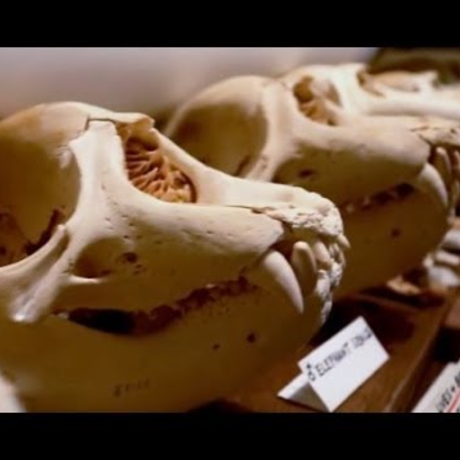Visit an aquarium, planetarium, rainforest, and natural history museum—all under one living roof.
Skulls
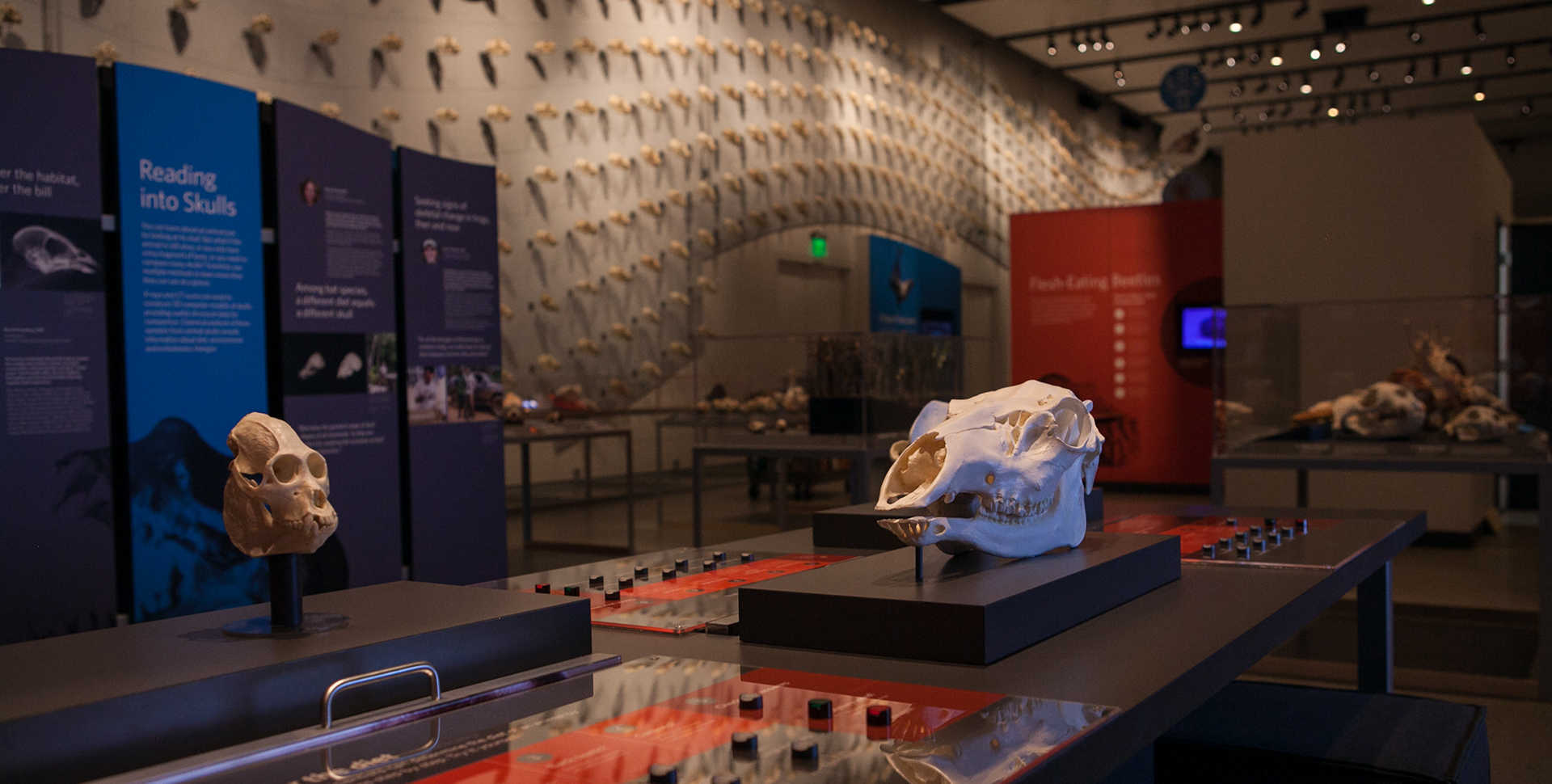
This exhibit is no longer on view at the Academy. Explore hundreds of skulls in incredible detail on our Sketchfab channel.
Before your eyes, thousands of tiny, flesh-eating beetle larvae strip a skull clean. Just steps away, an ancient skull allows you to gaze 3.3 million years into humankind’s past. Behind you, two deer skulls are locked together, their entwined antlers attesting to one final, deadly battle. Before you—on a wall stretching 90 feet wide—video projections of swimming sea lions add life to more than 400 skulls.
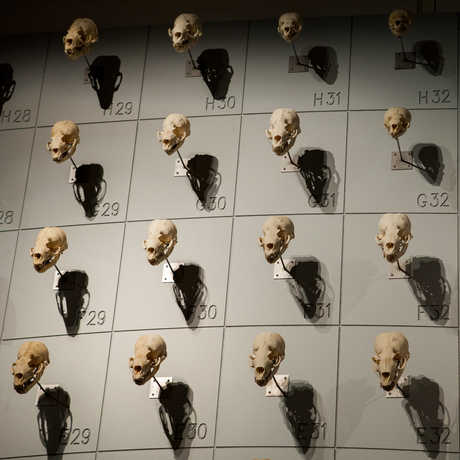
Sea of Skulls
Four hundred California sea lion skulls gaze down from a 90-foot-wide wall, representing just one-sixth of the Academy’s scientific collection of this species. But be on the lookout for imposters!
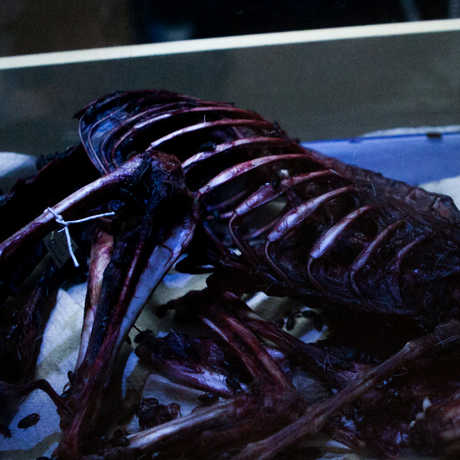
Flesh-Eating Beetles
Peer into one of several windows to watch our dermestid beetle colony munch the dried flesh off animal bones, diligently and delicately transforming skulls into specimens.
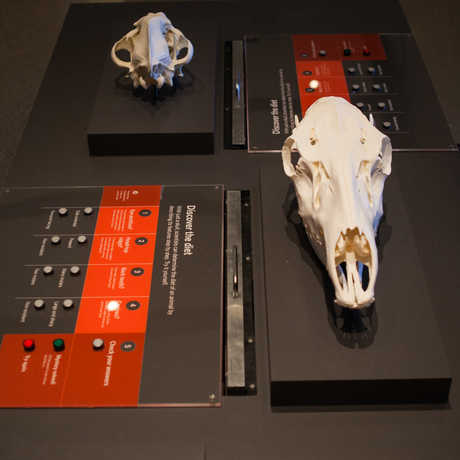
Hands-On Interactives
Skulls is a highly interactive experience, inviting you to touch, draw, and even reimagine your eyesight through various skulls. Experience vision as both predator and prey, try your hand at sketching skulls, and examine dozens of high-res, 3D skull images.
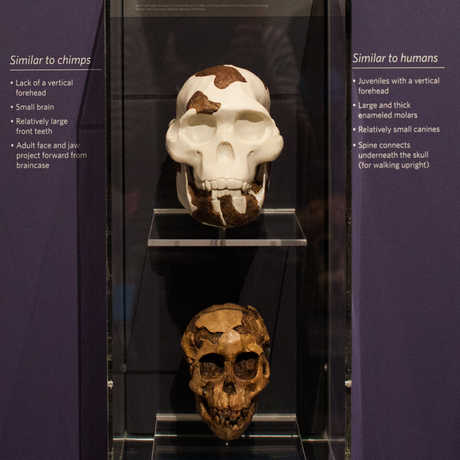
Human Origins
Three sets of skulls tell the story of our species, from the chimpanzee (our closest living relative) to Australopithecus afarensis—our distant, upright-walking ancestor. Compare and contrast these specimens to find clues about our evolutionary history.

Hands-On Interactives
Skulls is a highly interactive experience, inviting you to touch, draw, and even reimagine your eyesight through various skulls. Experience vision as both predator and prey, try your hand at sketching skulls, and examine dozens of high-res, 3D skull images.

Human Origins
Three sets of skulls tell the story of our species, from the chimpanzee (our closest living relative) to Australopithecus afarensis—our distant, upright-walking ancestor. Compare and contrast these specimens to find clues about our evolutionary history.
Academy scientists partnered with Google to image specimens from our research collections using an advanced, automated 3D technique. The results? Jaw-dropping.
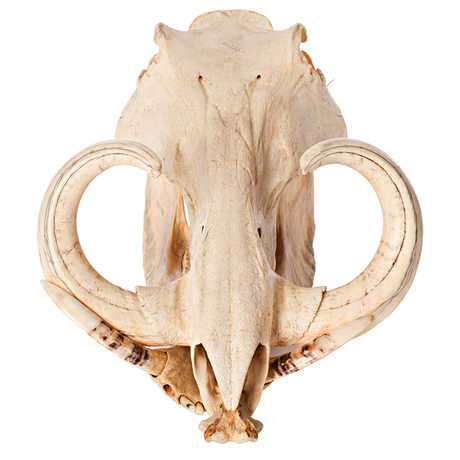
For more than 60 years, Academy field associate Raymond Bandar (1927-2017) collected thousands of skulls. In a ten-case display curated by “Bones” Bandar himself, visitors to the Naturalist Center can explore a variety of skulls featuring curious traits and abnormalities.
Visit an aquarium, planetarium, rainforest, and natural history museum—all under one living roof.
Academy scientists partnered with Google to image specimens from our research collections using an advanced, automated 3D technique. The results? Jaw-dropping.

For more than 60 years, Academy field associate Raymond Bandar (1927-2017) collected thousands of skulls. In a ten-case display curated by “Bones” Bandar himself, visitors to the Naturalist Center can explore a variety of skulls featuring curious traits and abnormalities.
